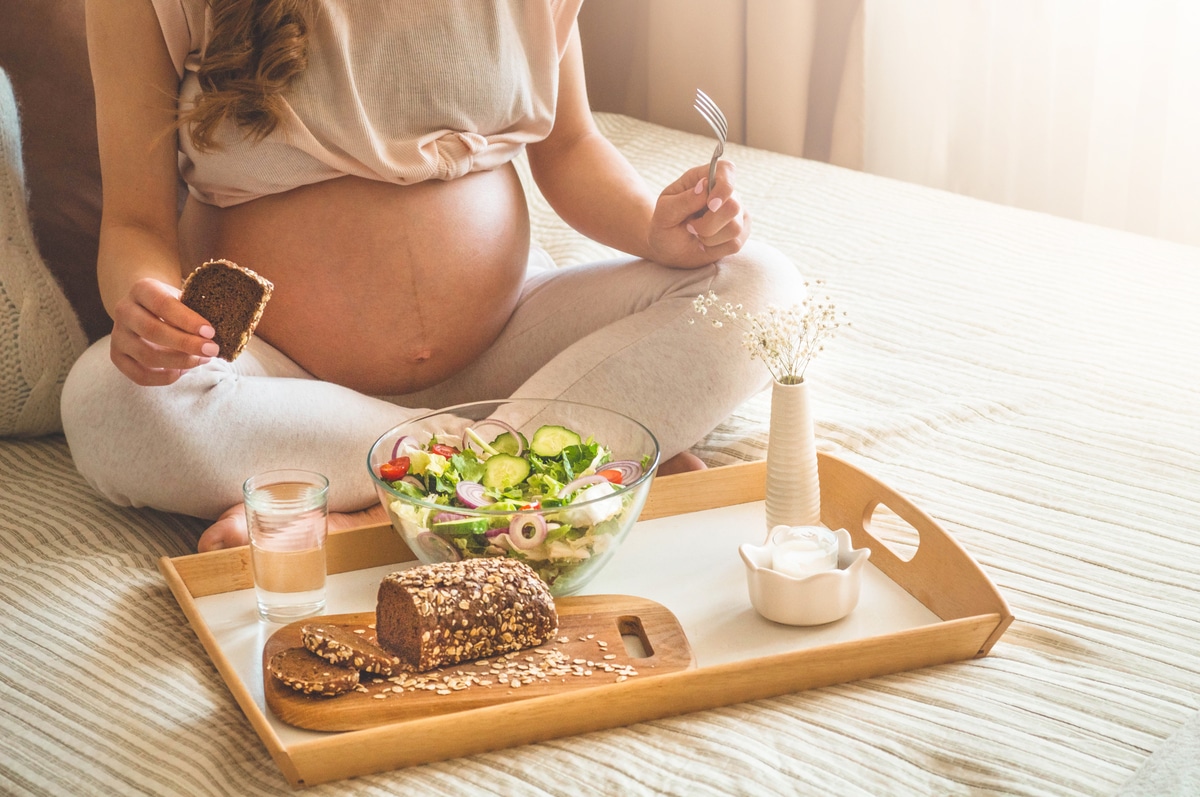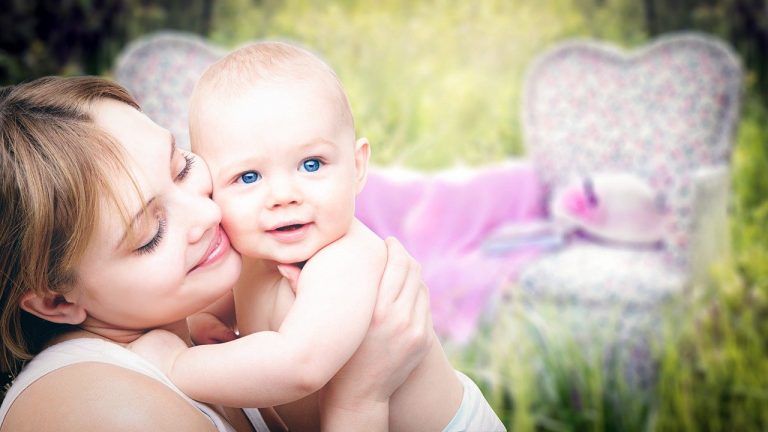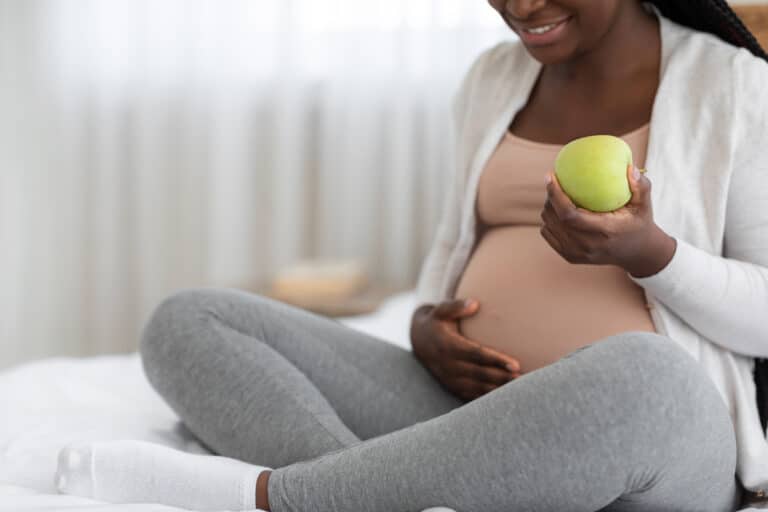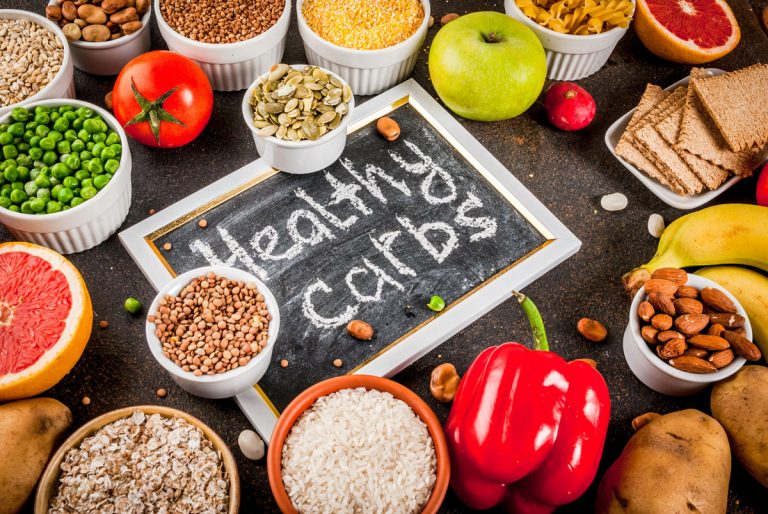Pregnancy is a beautiful gift from nature that allows the growth of human life. Everyone knows that when you’re pregnant you have all sorts of food cravings. It can be especially hard to find the right balance between healthy foods and comfort foods. Mindful eating during pregnancy isn’t just about the weight, but it is about the impact that certain foods have directly on your child.
What you put into your body will have a direct impact on both you and your baby. While it is important to eat healthily, it is also important to not be restrictive and allow yourself to continue to enjoy the foods you did before pregnancy. In this article, we will discuss how you can maintain a healthy balance of healthy food and comfort foods, without restricting yourself. We’ll talk about some of the best and worst foods to eat when pregnant, as well as explore the role that diet plays in pregnancy (it’s more scientific than just cravings!)
In This Article
Why is diet important during pregnancy?
People who are pregnant need to be extra mindful about what they eat because their diet can directly affect the health of their baby. Eating a nutritious diet allows pregnant women to have more energy and reduces the risk of complications during pregnancy. It is especially important to get enough folic acid, which can help to prevent certain birth defects.
Pregnant women should also avoid eating certain foods that may contain bacteria or toxins that could harm the developing baby. We’ll talk more about specific foods to avoid in a moment. By making more mindful food choices, pregnant women can help to ensure a more safe, healthy, and even enjoyable pregnancy for both themselves and their baby.
What are the best foods to eat when pregnant?
Generally speaking, pregnant women should aim to eat a variety of healthy foods that are rich in nutrients. That means plenty of fruits, vegetables, whole grains, and lean protein. Pregnant women also need to make sure they’re getting enough folic acid, which is important for preventing birth defects.
- Yogurt is great because it is high in phosphorus, B vitamins, magnesium, and zinc. There are also tons of probiotics that are good for your gut health, thus contributing to your overall health and digestive system.
- Legumes are a good food to eat when pregnant because they contain loads of fiber, iron, and folate. You can great really creative with legumes by researching recipes with chickpeas, which are healthy and yummy.
- Sweet Potatoes are a yummy option for pregnant people because they offer the comfort food tastes of potatoes and sweetness while being a great food source. Sweet potatoes contain a lot of vitamin A, which is essential to your baby’s growth.
- Berries are a great way to add natural sugar into your diet when pregnant. Berries are loaded with antioxidants, vitamins, and even fiber (which is important for Mom’s digestive health, especially during pregnancy!).
Of course, every pregnancy is different, and some women may need to make adjustments to their diet based on their individual needs. If you’re pregnant, it’s best to talk to your doctor or a registered dietitian to get customized advice on what to eat.
What are the worst foods to eat when pregnant?
There are certain foods that pregnant people should avoid, as they can pose a risk to both the mother and the developing baby. Raw or undercooked meat and fish can contain bacteria that can lead to food poisoning, and pregnant women are more susceptible to this. Deli meats and unpasteurized cheeses can also contain harmful bacteria, so it’s best to avoid these during pregnancy. Caffeine is another no-no, as it can increase the risk of miscarriage and other complications. Alcohol is also off-limits, as it can cause birth defects.
- High-mercury seafood such as swordfish and mackerel should be avoided when you’re pregnant. The FDA says that high-mercury seafood can impair a growing child’s brain and nervous system.
- Unpasteurized soft cheese should also be avoided as it can carry the risk of Listeria. Most cheese made in the USA is pasteurized, and therefore safe to eat–but always check labels!
- Foods with high trans fats can be risky in high quantities to people who aren’t pregnant but are especially risky to those who are. These foods can include most fried foods, some pancake and biscuits batters, and even margarine, frosting, and some dairy-free creamers. Always check the nutrition label when purchasing/cooking any of these foods!
How to balance a healthy diet while still eating great foods
Being mindful of what you put in your body doesn’t have to be a negative experience! Many people think that eating more healthy means cutting out their favorite foods such as pasta, cheese, and bread.
Recipes
Luckily, in this day and age, there are so many great alternatives to creating the same yummy meals as before–but with a twist on the ingredients. Below I’ll link some of my personal favorite comfort food recipes that are healthy and pregnancy safe, but most importantly–delicious!
- Spaghetti and meatballs recipe that loaded with hidden veggies
- Healthy chicken fried steak (that actually tastes good!)
- Yummy mac n’ cheese that won’t make you feel bloated
- Health(ier) Chicago deep dish pizza (it’s still deep-dish pizza so be cautious!)
- Sweet potato fries for when you can’t knock that french fry craving
There are so many more recipes that mimic your favorite comfort foods all over google. Just type in whatever your favorite comfort food is and add the word “healthy” to the search. You’ll be sure to find some hidden gem recipes that make you feel less overwhelmed about your diet while being pregnant.
Professional help
Just like how you would hire a house cleaner or a babysitter, there are also professionals available to help with your diet needs. If you simply don’t have time or energy to make healthy meals, you can always consider hiring a meal planner. Often times a meal planner will give you prepped food, usually, for a week, that matches your dietary needs and wants.
You can also talk with a nutritionist, especially one that specializes in pregnant diets. A nutritionist can help you map out a plan that takes your tastes and physical health into consideration. Whatever your diet needs are, you can be sure that someone is available to help.
Conclusion
While there are some foods that pregnant people should avoid, it’s important to remember that this is only a guideline. Every pregnancy is different, and you may need to make adjustments to your diet based on your individual needs. If you’re pregnant, be sure to talk to your doctor or a registered dietitian about what foods are best for you and your baby. And in the meantime, enjoy some of your favorite comfort foods in moderation!
Happy eating! 🙂










![Home Renovation Guide [2025]](/app/uploads/2021/04/design-hacks-1-378x300.jpg)
